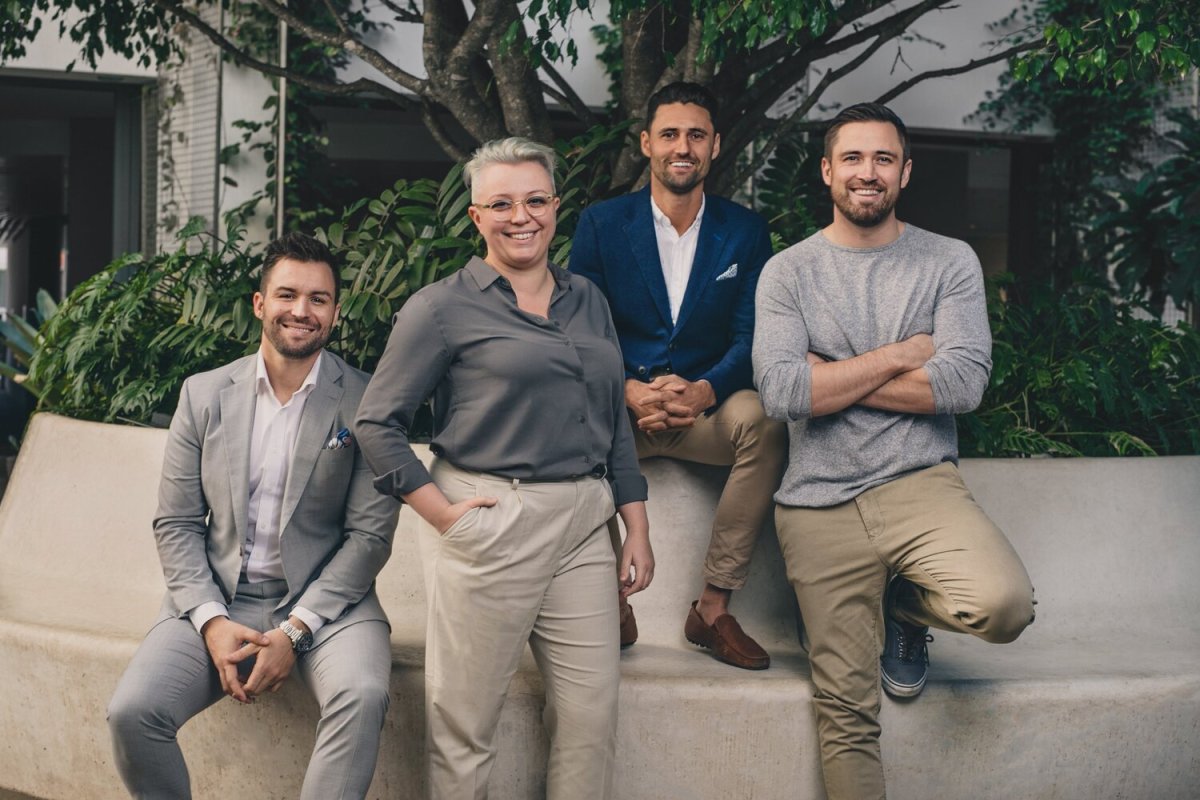Two weeks before the Federal Government announced the forced closure of dine-in operations, Bondi bar Isabel made the decision to shut down its bar operations. Owners Kate McGraw, Geraint Cole, Michael Riley and Mitchell Slattery weren’t giving up though — they were using the time to get ahead.
“From the get go we wanted to be really proactive about our approach to it and use a little bit of the momentum to slingshot us on a new trajectory,” says McGraw.
For a new bar with less than a year of operation under the belt, staying open was the only strategy. “For us, having zero income stream just wasn’t a possibility at all,” says McGraw. “Even before all this was happening, we knew we needed to really hustle this winter and do something different and exciting so that we could keep some revenue coming through.”
When the coronavirus outbreak started to escalate quickly in mid-March, the business partners sat down and asked each other whether their approach would be one of flight or fight. “We love the business so much, we decided to give it a red hot go,” says McGraw. “It would have been almost insurmountable to reopen after a closure.”
That new trajectory is designed to get Isabel Bondi through a winter that’s going to be even tougher than the team originally planned for. The Japanese-inspired bar opened in July 2019, trading in signature drinks (think cocktail kaiseki) and yakitori. Now, it’s a ramen-forward takeaway joint.
It’s the same cuisine, but a completely different playing field. While cocktails used to take centre stage, they’re now a support act.
“Now that the liquor licensing laws and stuff has been relaxed a bit, we’re going to start out our cocktail program up again,” says McGraw. “Before the closures we were doing about 80 percent of our sales a week in alcohol and around 50 percent of that was signature cocktails. I’d like to think that people will start ordering cocktails through the delivery channels but we’ve adjusted our expectations in that regard.”
While the bar is known for its signature cocktails and highballs, McGraw is sceptical diners will be looking to purchase expensive drinks in the current climate. “Everyone has a bottle of gin at home, everyone has a bottle of vodka, everyone probably has a crusty old bottle of tequila at home,” she says. “They’ve probably bought three cases of wine. They’re not necessarily going to think I’m going to call up Isabel and get them to deliver me three bottles of wine.”
Previously, guests would come for a cocktail and the team would offer edamame or yakitori to snack on. In the new world, the scenario is flipped and they’re offered a drink to accompany their ramen. “It’s using cocktails as the upsells, when that would normally be [the role of] our food program,” says McGraw.
Although that’s meant adjusting the expectations of everyone from staff to customers, the plan is working. While everyone’s on reduced hours except McGraw and on other full-time manager, the entire team has been kept onboard.
“We sat the team down and said to them, ‘Do you guys want to stay and go in a different direction for six months?’,” says McGraw. “They all came to us for one reason, which was to be in a really intense cocktail environment. Now I’ve got bartenders folding gyoza pretty much around the clock to keep up with demand. I’ve got them making stock. They’re doing letterbox drops with menus, they’re answering the phone, they’re doing deliveries. It’s been a real team effort.”
For the time being, that effort is keeping Isabel afloat. When the time comes to reopen, McGraw hopes they’ll hit the ground running with a team of well-rounded staff. “I think in the long term, this is going to be incredibly good for our business,” she says. “Even if you think making gyoza or stock doesn’t have a direct bar kind of correlation. It does. You’re working with flavour and you’re working with technique. I think we’re going to come back really strong.”
McGraw herself has learned a thing or two in the short amount of time operating under the shutdown. “The big thing that I’ve taken from this is, the more honest you are with the people around you — be it staff, business partners, customers, whoever — the easier this whole thing becomes,” she says.
Transparency is key in a situation where everyone is figuring it out as the go and nobody knows the final destination. McGraw has started disclosing the business’ financial situation to staff and even a handful of regulars; that’s definitely not the norm. “I wouldn’t usually think a barback needs to know what our fixed cost of electricity is,” says McGraw. In telling them, McGraw has seen
There’s been a bigger shift in the way McGraw looks, not just at her business, but the industry as a whole. “I’m guilty of being quite rigid in what I think a bar should be or what I think a program should be,” she says. “It’s pretty naive to think that when venues can open their doors again, it’s all going to be just how it was. Whatever normal is in two years time is going to be completely different to whatever normal was two weeks ago. So, how do we make sure that we’re as fluid and as flexible as we can be, to be able to deal with whatever it ends up being?”
Answering that question might seem daunting at this point in the crisis, but it doesn’t have to be. While the impact on society will undoubtedly be seismic, it won’t necessarily be negative. As McGraw says, “Maybe it’ll be wild and debaucherous and amazing.”

